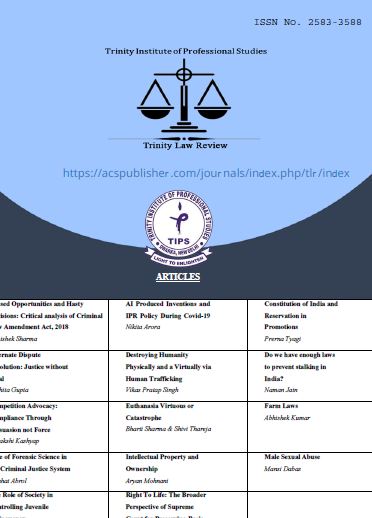Alternative Dispute Resolution: Justice Without Trial
Keywords:
democracy, establishment, ADR, Dispute, divorceAbstract
India having one of the largest democracy and widest Judicial system, it has often been found that the courts in India have failed to show their competence in coming up with a quick resolution. Even though the Constitution of India and the Apex court of India, the Supreme Court, has given its consent and full support to the establishment and execution of Alternative Dispute Resolution (ADR) protocols that are meant for providing quick solutions to cases. But despite the presence of a statutory ADR system in India, many cases like matrimonial and family disputes are still considered as troublesome affairs taking enormous time to get any sort of satisfactory resolution as quite often the ADR system’s presence and functioning remains hidden to the appellants. The primary objective of this research paper is to concentrate on the functioning and limitations of the ADR system, particularly in terms of providing satisfactory resolution cases (including divorce, domestic violence, and child custody cases).




